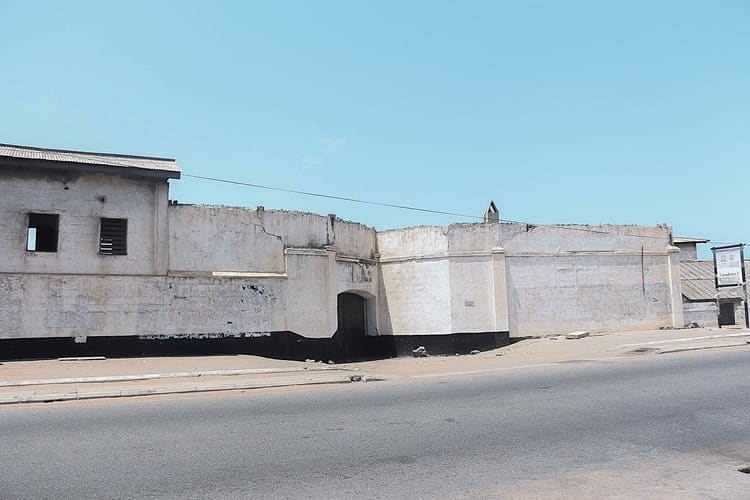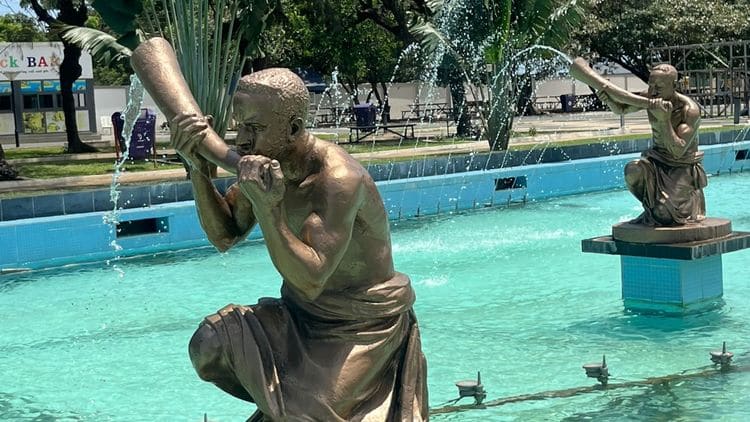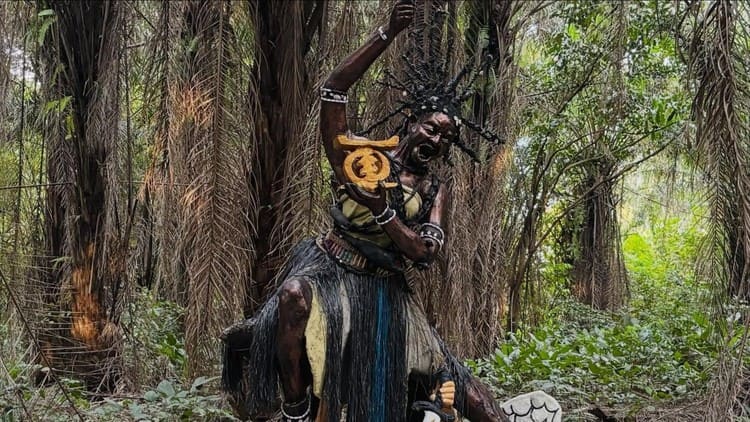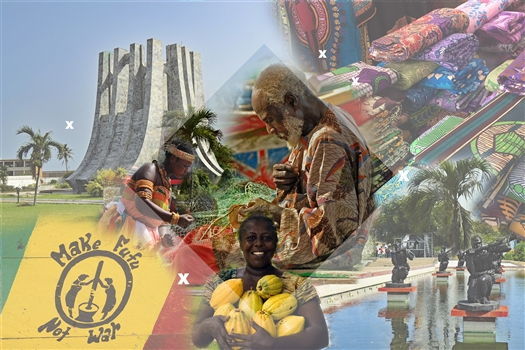Ghana's Sweet Heritage and the Birthplace of Ghana's Chocolate Industry
Do you love chocolate? Ghana produces some of the world's finest and most flavorful chocolate. If you want to know where it all began, then Tetteh Quarshie Cocoa Farm is the name you need to know. Ghana's history would be incomplete without mentioning this agricultural and historic place.
Globally recognized as a major producer of cocoa, the country's cocoa industry began specifically with this farm located at the Akwapim-Mampong, 58 km away from Accra. Let’s call it the "genesis" of Ghana's cocoa industry. Also known as the Eco museum of Cocoa, the farm was named after its founder Tetteh Quarshie, a Ghanaian farmer who brought cocoa seeds to the country in 1879 from Bioko, Equatorial Guinea.
As the birthplace of Ghana's cocoa industry,it holds tremendous historical, cultural, and economic significance, since the country is widely recognized as one of the world's largest cocoa producers. Ghana produces high quality cocoa with various applications in food, pharmaceutical, cosmetics and traditional medicine production. The farm welcomes thousands of visitors from Ghana and around the world each year.
Brief History
Ghana's cocoa history began with the journey of Ghanaian farmer Tetteh Quarshie (1842-1892) to Bioko, formerly known as Fernando Po in Equatorial Guinea, in 1870. Upon his return to his motherland in 1876, the farmer brought in cocoa seeds with him. And that was the moment when the crop was officially introduced to the country. Tetteh Quarshie planted these cocoa seeds and established a cocoa farm in 1879 in Akuapim-Mampong, 58 kilometers from Accra. Three trees originally planted by him remain on the farm today.
Exploring Tetteh Quarshie Cocoa Farm
Presently the farm is managed by the Cocoa Research Institute of Ghana (CRIG). It was established after Ghana gained independence. Declared a national monument in 1986, the farm also serves as a research center for cocoa cultivation and development. It is your chance to learn with cocoa from professionals and researchers in the field of agriculture.
The Farm is undoubtedly a must-visit destination for anyone learning about Ghana's Culture. From sightseeing the first cocoa trees planted by Tetteh Quarshie to exploring the beauty of Ghana's first cocoa farm. Visiting the farm helps visitors understand how farming shapes Ghana's economy and provides insight into Ghanaian community farming practices.
Your visit will be incomplete without touring the historic cocoa museum which showcases Ghana's cocoa history, the monument commemorating Tetteh Quarshie's contribution to the cocoa industry, a farmhouse with Tetteh Quarshie's living quarters and the originally planted cocoa trees. Upon arrival at the farm, professional tour guides knowledgeable about cocoa and the farm's history will welcome and guide you. What are you waiting for? Get ready to taste the best of Ghana's cocoa.
Attractions Nearby
You would miss incredible experiences if you ended your journey at Tetteh Quarshie Cocoa Farm. The surrounding region features beautiful and exciting historical sites that will make your journey memorable.
- Aburi Botanical Garden: You cannot visit the Eastern Region of Ghana without experiencing the tranquil environment and century-old trees. The gardens is perfect for a picnic.
- Boti falls: These twin waterfalls, identified as male and female, are in Boti in the Yilo Krobo district. According to Ghanaian legends, when these waterfalls merge, they form a beautiful rainbow.
Planning Your Trip: Tips for visiting
Wondering how to reach the farm? Need travel tips? We have you covered. Various transportation options are available, as the farm is only 58 kilometers from Accra. To save money, you could go by bus, though taxis are also convenient and affordable. Popular bus stations in Accra are Madina and Circle where you can find buses heading your destination.
Since outfits and the way you dress plays a significant role in Ghanaian culture, dress modestly to show respect. Ghanaians are known for conservative clothing choices, so avoid revealing attire. Respect local traditions at all costs, as the Ghanaian community values customs and traditions highly. Bring sufficient cash money, as the community offers many beautiful gifts and souvenirs that may capture your attention.
Another notable fact is that using your left hand is a sign of disrespect. Also, always ask permission before taking pictures and videos. Drink only filtered water (bottled or sachet water) and bring mosquito repellent with you, especially if you travel outside the city.
The best time to visit is during the dry season (November-December) to prevent rain from disrupting your journey and ensure clear road visibility. This will also give you a clear view of the roads. For accommodation, welcoming hotels such as Hillburi Hotel and Peduase Valley Resort provide comfortable stays and serve appetizing local and international dishes.


















Comments